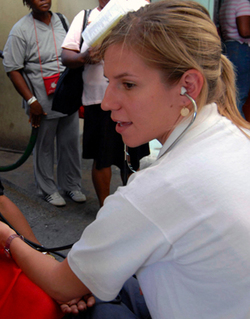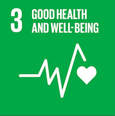
Across the world, all people aspire to receive quality, affordable health care. Universal Health Coverage (UHC) — UN SDG Target 3.8 — is about people having access to the health care they need without suffering financial hardship. It aims to achieve better health and development outcomes, to help prevent people from falling into poverty due to illness, and to give people the opportunity to lead healthier, more productive lives. Read more >>
Developed by a collaboration between the World Health Organization and the World Bank — in anticipation of the new United Nations 'Sustainable Development Goals 2015-2030' — UHC requires several key factors.
These include:
|
1) A strong, efficient, well-run health system that meets priority health needs through people-centered, integrated care by: informing and encouraging people to stay healthy and prevent illness -- detecting health conditions early — and having the capacity to treat disease and to help patients with rehabilitation.
2) A sufficient capacity of well-trained, motivated health workers to provide the services to meet patients’ needs based on the best available evidence. 3) Access to essential medicines and technologies to diagnose and treat medical problems. 4) Affordability – a system for financing health services so people do not suffer financial hardship when using them. This can be achieved in a variety of ways. Learn about the features of Universal Health Coverage. |
Wikimedia Photo Credit: Laura Seris — a Registered Nurse and Project Hope volunteer — takes a blood pressure reading from a patient at Moulton Hall Methodist Primary School in 2007. Photographer: Joan E. Kretschmer, released to public domain.
